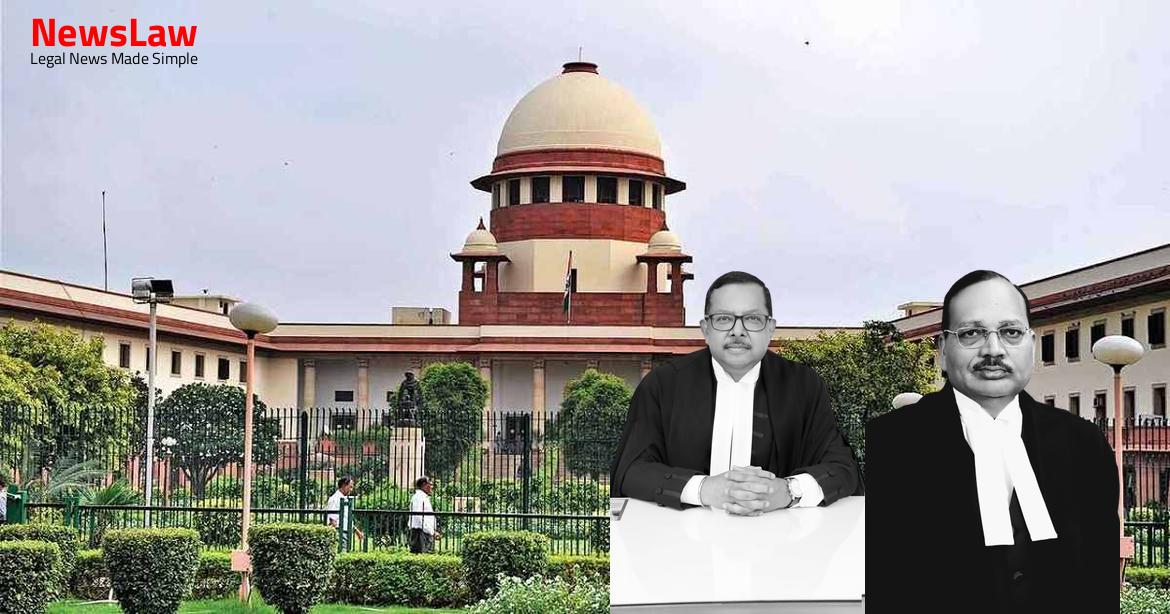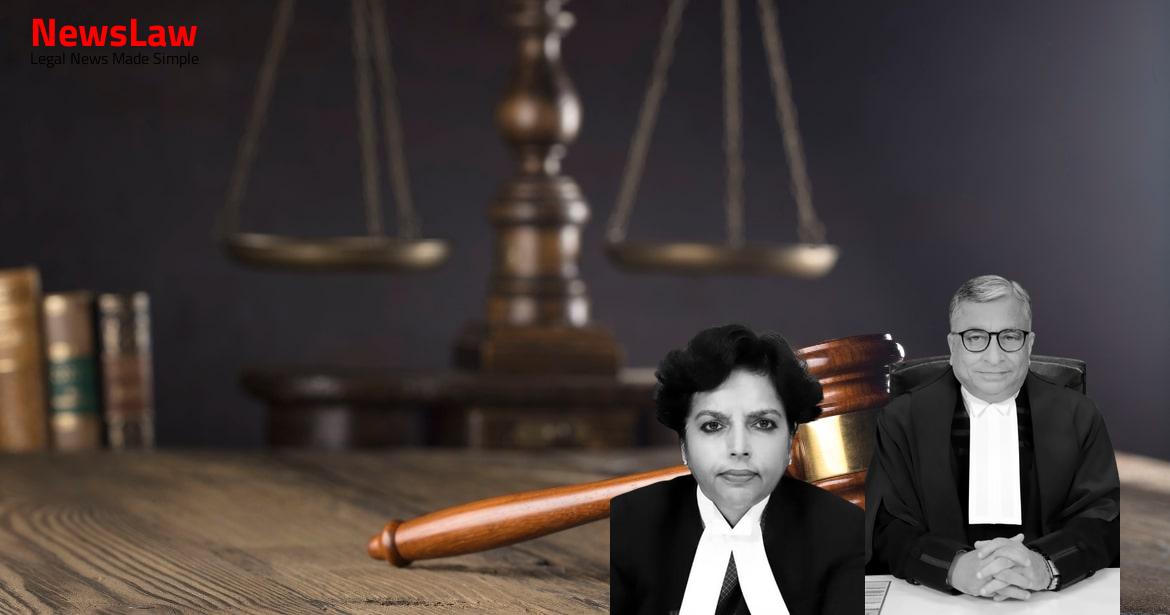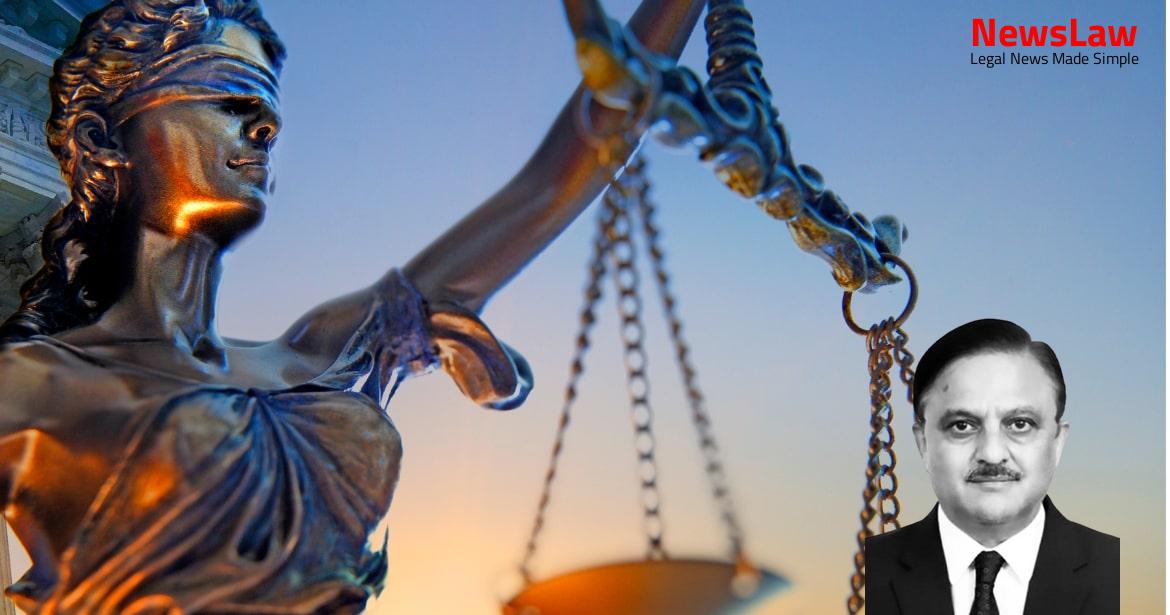In a recent judgment by the Supreme Court of India, the rights to a speedy trial have been upheld in the case of X vs. State of India. The appellant, who has been in jail for over nine years, has finally been granted bail, emphasizing the importance of timely justice. The decision comes after a prolonged legal battle and highlights the fundamental principles of constitutionalism and rule of law.
Facts
- The High Court rejected the bail application of the petitioner under Section 439 of Cr.P.C. in a case registered under Sections 489B and 489C of IPC and Section 16 of the UAP Act.
- The High Court quashed the order of cognizance against the appellant due to lack of valid prosecution sanction under Section 16 of the UAP Act.
- The trial court framed charges against the appellant which were later limited to Sections 489B and 489C of IPC.
- Sanction for prosecution was granted after the High Court’s order, but it was deemed invalid for lacking independent review of evidence as required by Section 45(2) of the UAP Act.
- The High Court observed that despite obtaining sanction, there was a clear case of non-application of mind by the State due to non-compliance with the mandatory provisions of Section 45 of the UAP Act.
- The appellant filed a bail application before the High Court which got dismissed.
- The Hon’ble Governor granted full sanction for prosecution of the appellant under the UAP Act.
- A supplementary chargesheet under Section 16 of the UAP Act was filed.
- The appellant’s bail application before the trial court was rejected.
- The appellant was engaged in the illegal trade of supplying counterfeit Indian currency notes in Nepal.
- Various documents and mobile phones were recovered from the appellant.
- The appellant has been in jail for eight years and only two witnesses have been examined.
- The appellant’s application for discharge was rejected by the trial court.
- Summonses were issued to prosecution witnesses by the trial court.
Also Read: Rizvi Committee Pay Scale Judgment: Upholding Justice and Equity
Arguments
- Ms. Garima Prasad argues that the charges against the appellant are serious and the trial is unlikely to conclude soon, thus the appellant should not be released on bail but the trial should be expedited.
- She mentions that the appellant is accused under the UAP Act and therefore not entitled to bail.
- Mr. M.S. Khan, on the other hand, argues that the appellant has been in custody for over nine years, and being a foreign national, there is a risk of flight. Hence, he should be granted bail.
- The appellant has been in jail since 23.02.2015, which amounts to nine years.
- Learned state counsel requested for more time to obtain instructions.
- Only evidence of two witnesses has been recorded as per the impugned order.
- Reference was made to the decision of this Court in Gurwinder Singh Vs. State of Punjab.
- The submissions of the learned counsel for the parties have been duly considered.
Also Read: High-Powered Sale Committee Formation for Asset Auction in Sai Group of Companies Case
Analysis
- The trial is proceeding at a slow pace, violating the accused’s right to a speedy trial under Article 21 of the Constitution.
- Bail conditions imposed must not be arbitrary, fanciful, or onerous, but consistent with the objective of bail and should curtail the accused’s rights to the minimum extent required.
- Conditions for bail should not violate the right to privacy of the accused and should not include constant monitoring of the accused’s movements.
- The statutory restrictions like Section 43-D(5) of the UAPA do not eliminate the ability of constitutional courts to grant bail based on a violation of constitutional rights.
- The accused has a fundamental right to a speedy trial under Article 21 of the Constitution, especially if facing serious charges.
- Bail conditions should be balanced between the accused’s rights and the need for justice, ensuring they are not unduly restrictive.
- The imposition of bail conditions, especially those enabling constant tracking of the accused, may infringe on the right to privacy guaranteed under Article 21.
- The courts should show restraint in imposing bail conditions and ensure they are not used as the sole basis for denial of bail or breach of constitutional rights.
- The rights of the accused, including the right to privacy, should be safeguarded against provisions like Section 43-D(5) of the UAPA being misused to deny bail or prolong incarceration.
- Section 43D of the UAP Act restricts bail for those accused under certain sections of the Act unless the public prosecutor has been heard.
- The accused cannot be released on bail if there are reasonable grounds to believe the accusation is true.
- Section 489B IPC deals with using forged currency as genuine, punishable by life imprisonment or up to ten years and a fine.
- Explanation (b) clarifies ‘high quality counterfeit Indian currency’.
- Section 16 of the UAP Act involves punishment for terrorist acts threatening India’s economic security.
- A ‘terrorist act’ includes undermining monetary stability by producing or circulating counterfeit currency.
- Possession of forged currency under Section 489C IPC carries up to seven years imprisonment, a fine, or both.
- In the case of K.A. Najeeb, the appellant was in jail for over five years, leading to directions on undertrials facing charges under the NDPS Act for more than two years.
- The decision in Gurwinder Singh stated that delays in trials for serious offenses cannot be sole grounds for bail.
- Bail should be granted if the accused’s right to a speedy trial under Article 21 of the Constitution has been violated, regardless of the severity of the crime.
- The case of Javed Gulam Nabi Shaikh highlighted the right to a speedy trial for all accused individuals, emphasizing the importance of constitutionalism and rule of law.
- The equation of presumption of innocence until proven guilty was emphasized, even in cases involving stringent penal laws.
- The State should not oppose bail solely based on the seriousness of the crime if it cannot ensure a speedy trial, as per Article 21 of the Constitution.
- Pragmatic approaches are necessary to balance the interest of citizens’ liberty with the potential guilt of the accused.
- The judgment in Angela Harish Sontakke reiterated the importance of speedy trials and access to justice as part of the protective ambit of the Constitution.
- Bail is not meant to be withheld as punishment, and practical conditions can be imposed instead.
- Section 43D(5) of the UAP Act does not restrict the ability of constitutional courts to grant bail based on constitutional violations.
- It is a misconception to claim that bail cannot be granted under a particular statute.
- Granting bail aligns with constitutional jurisprudence.
- The decision in K.A. Najeeb case is binding on lower benches.
- The appellant’s continued incarceration is unjustified.
Also Read: Landmark Supreme Court Judgement: Ensuring Justice for SDI/ABSA and DBSA
Decision
- The impugned order dated 03.04.2023 of the High Court is set aside and quashed.
- Appellant is directed to be released on bail with specific conditions.
- Trial court to impound the passport and/or citizenship documents of the appellant.
- Appellant must appear before the trial court on every trial date.
- Appellant is not allowed to leave the territorial jurisdiction of the trial court and must provide his address to the trial court.
- Appellant to mark his attendance before the designated police station once every fortnight until the trial concludes.
- Bail is granted to the appellant.
Case Title: SHEIKH JAVED IQBAL @ ASHFAQ ANSARI @JAVED ANSARI Vs. THE STATE OF UTTAR PRADESH (2024 INSC 534)
Case Number: Crl.A. No.-002790-002790 – 2024



